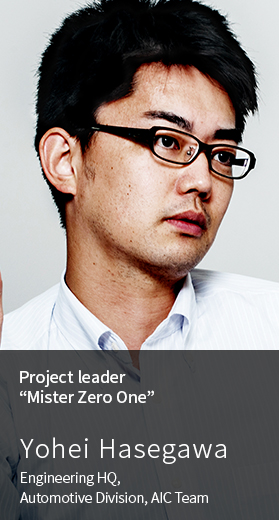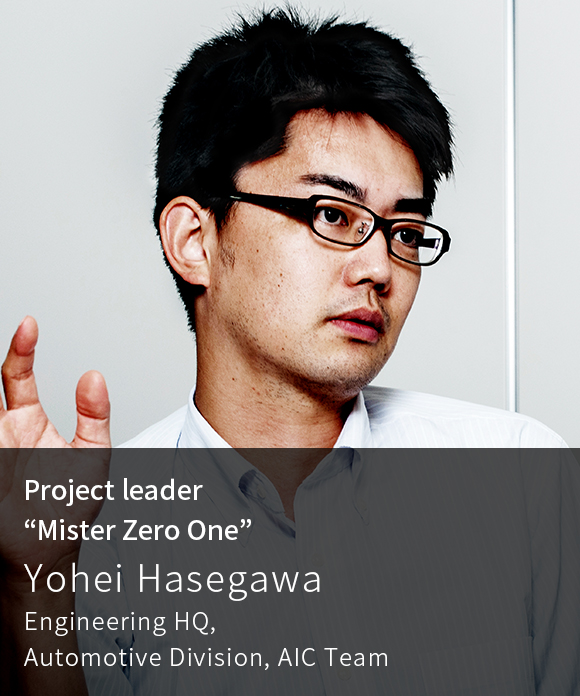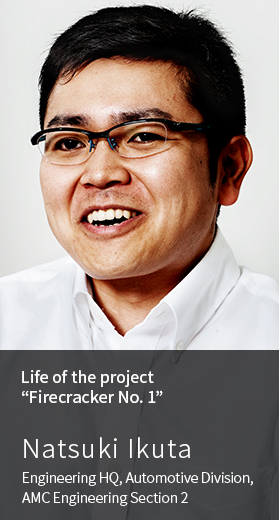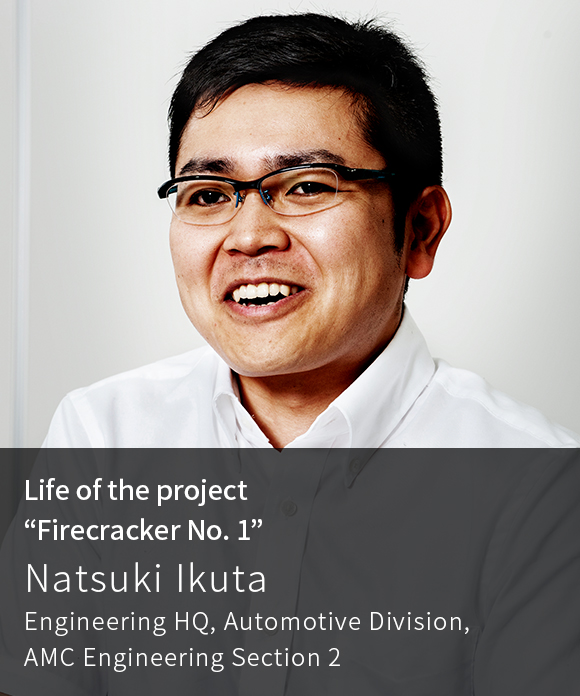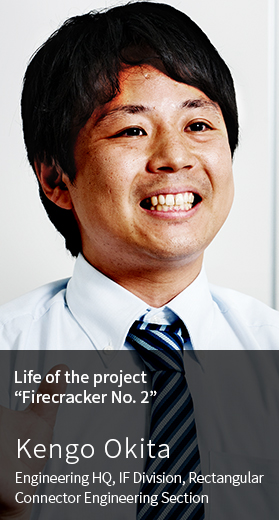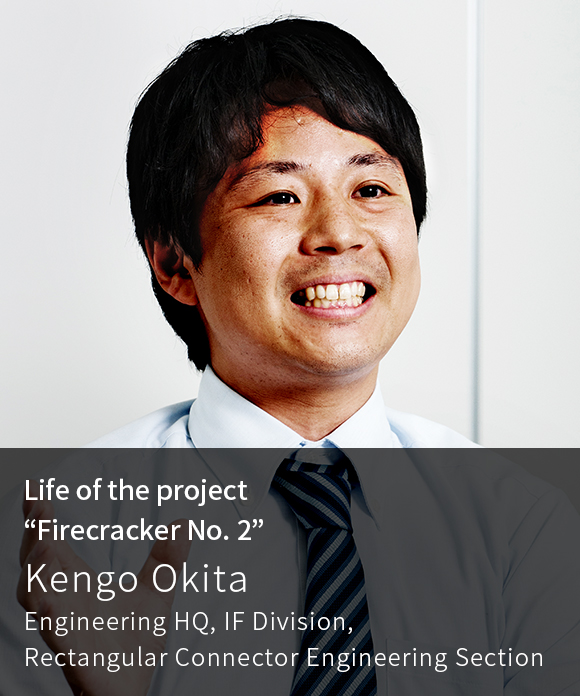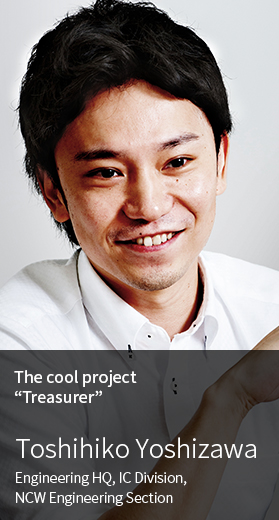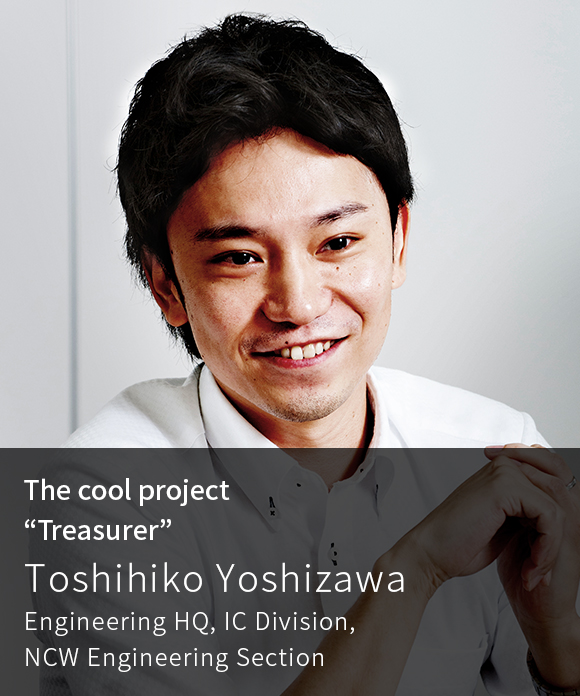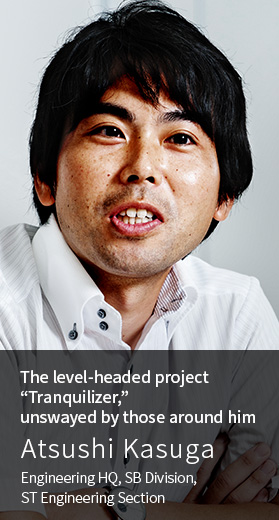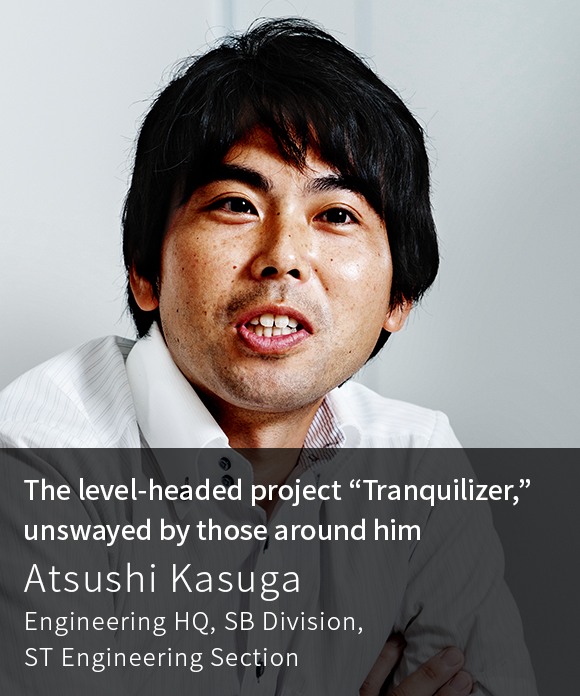Our connect
Engineers with fresh new ideas, come one come all, to the “Zero One Festival”!
In February 2018 Hirose will hold its internal “Zero One Festival.” This festival, led by young engineers in their early 30s, will be the company’s first event in the form of an idea contest that provides engineers an opportunity to demonstrate their spirit of challenge. This will be the first event of its kind, so everything from planning to operation is being felt out as it goes along, but the project’s members are using down time during their work to push forward with the project, to assure its success. We asked the members to provide an overview of the Zero One Festival and discuss what kind of event they want it to be.
First, let me ask about the Zero One Festival.
What do you mean by “Zero One?”
Yoshizawa: Zero One refers to the intent to create products that do not yet exist, or that we do not have yet , going from “nothing” to “something.” If “10” represents a completed product, then this is an opportunity to create the “1” that can one day become a “10.” During the Zero One Festival everyone will be able to present their ideas. We have individual exhibitions, to which customers are invited, every three years, but while engineers go all out in the years when the exhibitions are held, during the intervening period they are a bit low key. We hope to make this into a company-wide event that will continuously stimulate engineers’ motivation.
Hasegawa: Many people may be familiar with the story of the sticky note, whose origin lies in a failed project aimed at developing a powerful adhesive. Ideas can spring forth from failures, so one of the intentions of this festival is to come up with off-the-wall ideas and produce numerous failures. Throughout the company there isn’t enough of a spirit of challenge, and I’ve heard that the Group Chief initially planned this with the intent to change this situation.
Ikuta: Many of the leaders of product development are in their 30s, and a relatively large share of the movement in our company is led by young employees. However, the reality is that products don’t get built without focusing on whether they will be profitable and how big their market is. We haven’t had a place where we could test new ideas which could be technically difficult, whose sales potential we didn’t know, or which we didn’t know if customers would accept. My understanding is that the festival was planned to help solve the problem of people having the drive to develop products but being unable to take that first step forward.


You’re young employees who have been with the company for more or less a decade. What got you involved in this project?
Hasegawa: I’m the only one who volunteered, the rest are all elites selected by their offices (laughs). What got me involved in the project was an invitation over drinks where I was asked to take part, as the project was looking for people. I already had an interest in the designs of other departments, but in my current work, of course, I need to contribute to my departmental meetings and its sales goals. However, I had always felt that there was something wrong in people being unable to come up with ideas in other areas, so I liked this project. I and the other members are in the Engineering Group, and the project has reached out to young employees in sections such as the Automotive Division, Industry Division, and SB Division.
Ikuta: In my case, my superior asked me if I’d like to take part in the project. Actually, by this point preparations had already been made, so he said “If you really don’t want to be part of it, let me know.” I began from a position of asking what the Zero One Festival even was, but the more I heard about the project, the more I became interested in taking part. Even before hearing about the project, I wanted to take on a new challenge.
Okita: My superior just told me it was a done deal, and I didn’t have a say in the matter (laughs). I had already heard of the Zero One Festival, though, and I wanted to offer up some ideas. When my superior brought up the topic, it didn’t catch me by surprise. I just hadn’t expected to end up on the organizer side. Organizers can also propose ideas, so I’d like to work up an interesting idea and submit it.
Yoshizawa: I was also selected by my superior. There are a few other young employees my age in the same division. In fact, it wasn’t so much that my superior made the decision, it was down to the Group Chief that planned the project who had selected some potential project members. I don’t know the details, but when I learned about the project, I thought it sounded interesting and decided to participate.
Kasuga: Like the other three, my superior also approached me about it, but to be honest I wanted to turn down the offer at first (laughs). Hirose is a dedicated connector manufacturer, and connectors account for over 99% of our sales. My division is a new business division that works with sensors. Essentially, our day-to-day work is the kind of thing that the Zero One Festival is trying to do. Before trying to pull the whole company together to hold a lively event, I’d rather the company first tried to enliven my own division (laughs). But I think that creating a corporate culture of taking on new challenges would be a great thing, and now I’m very eager to do my best for the project.
How is the Zero One Festival progressing?
Hasegawa: This project actually was launched without working out any details like how to carry it out, any overview of idea submissions, or the like. From the start, we all met frequently to determine how to progress. Now, we’ve already started receiving entry ideas from within the company, and in February 2018 we plan to hold an actual event at the Yokohama Center. Right now it looks most likely that we will gather up all the ideas that have been submitted and have them judged on the day of the event. Entries can consist of any ideas – they don’t have to have anything to do with connectors.
Okita: We’ve already started accepting entries, and plan to close the entry window at the end of September. (Editor’s note: this interview was conducted in August 2017) The number of entries is still low, but looking at what’s going on with individuals and various sections, it looks like in the end we’ll have somewhere between 30 and 40 ideas. There are still many people who are seeing how things play out, so we need to think up some measures that will liven things up. We look forward to seeing some crazy ideas from members who are in their second or so year in the company (laughs).
Ikuta: The entry sheet’s idea example is “a giant robot made up of multiple smaller robots connected with Hirose connectors,” but ideas like that would be just fine (laughs). So far, the only things we’ve done to drum up some excitement is to create posters. We haven’t had the budget so far, so to be honest we haven’t had the money for more. Now our budget has been approved, so we’d like, for example, to offer fabulous prizes for excellent ideas. Not just fabulous prizes, but something that people would feel truly proud to win. Ideas? How about a gold desk, so even from far away you could see “Oh, that’s the person who won the contest” (laughs). We’ll work on it.
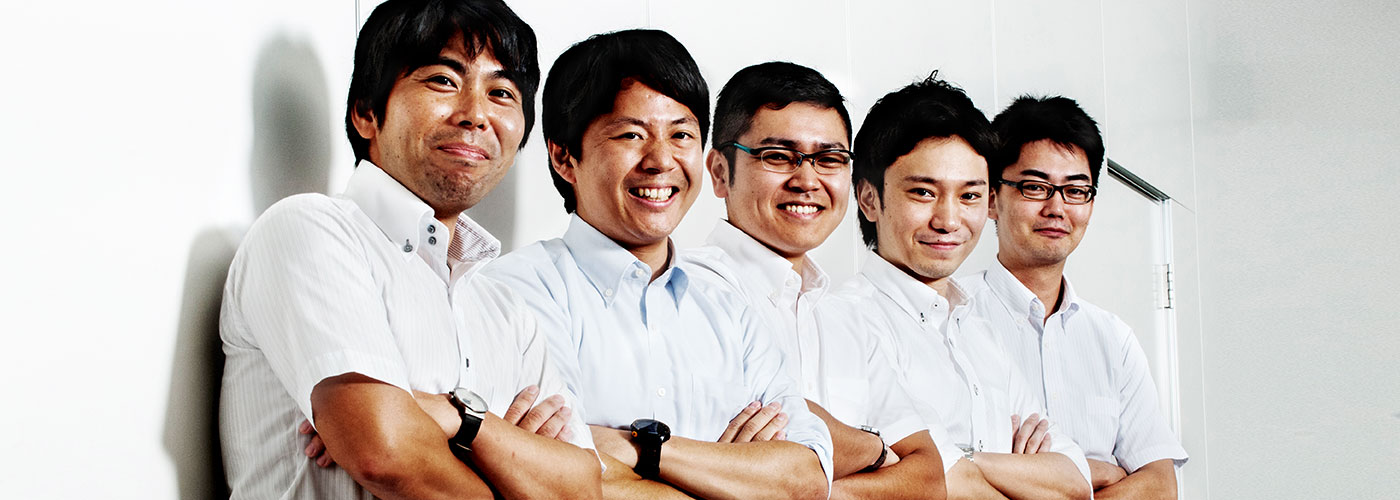
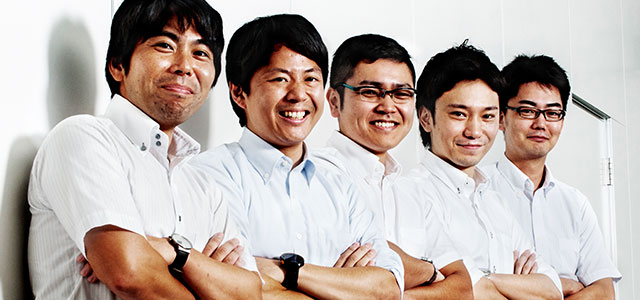
What kind of event do you want to hold?
Hasegawa: I hope that the Zero One Festival becomes an opportunity to continuously think about how individuals can contribute to new business success, and how people can start and manage new business. I also hope it prompts the company to keep holding events like this one that provide further support for the ideas of us engineers.
Ikuta: I would like it to serve as a new index for evaluating engineers. Just being able to do as you’re instructed and create products that sell isn’t enough to make a great engineer. Conversely, taking on new challenges, failing, and creating products that don’t sell doesn’t make an engineer a poor one. If we can have the festival seen as a new evaluation opportunity, I think it will help us become a company that constantly innovates. Personally, I’d also like for it, by spanning division lines, to contribute to people learning new methods and achieving personal growth.
Okita: At present, it’s hard to take a free conceptual approach to development, and there are areas in which people just aren’t motivated to try new things. Since resources are limited, people just select what seems doable. I hope that participating in this festival changes peoples’ mentality to one of choosing what they want to do – what is truly necessary. Personally, it has come as a great surprise to me that Hasegawa wants to work on the products handled by other sections (laughs). That had never occurred to me, and this has got me thinking as well.
Yoshizawa: Taking part in this project and listening to what Hasegawa has had to say has made me realize how insignificant I've been. Hasegawa has already submitted several entries on his own, and he’s always thinking of new things. It has made me keenly aware of the differences in our mentalities, and I need to become more like Hasegawa. There are a lot of people, myself included, who take the approach of going from place to place taking orders. I want us to think of ways to get people like this to come up with ideas, bringing greater vitality to the event.
Kasuga: I’ve worked in business segments other than connectors since joining the company, so I realize that I’m in somewhat of a different position. It’s very hard to allocate resources to new business segments, but this festival is gathering ideas other than connectors as well, so it’s a perfect opportunity for me. I want it to help show people what is being done in Hirose, what Hirose is capable of doing, and for people to discover interesting things that Hirose members are capable of. It’s truly a one-in-a-million chance.
The Zero One Festival is the first event of its kind within the company, and the first festival is being directed primarily by the Engineering HQ. If it’s successful, the members say, they would like to bring in people from other departments as well, growing it into a company-wide event, and then into a group-wide event, spanning the whole world. The organizers will be developing specific performance concepts, and say they would like the event to have a festival-like mood, featuring ideas such as a mikoshi (portable divine shrine) or yagura (traditional festival stage). The members are also excited about bringing beer taps out onto the floor when the event ends and having a large banquet.
Lastly, the members discussed their desire for people to submit any ideas they have. “We don’t want to make this an event in which people can only submit formal, refined ideas. We want to lower the entry hurdle as much as possible, and are waiting for people to flood us with entries. We are certain that ideas that aren’t successful will serve as learning opportunities,” says Hasegawa, or “Mister Zero One,” as he passionately brings the interview to a close.

